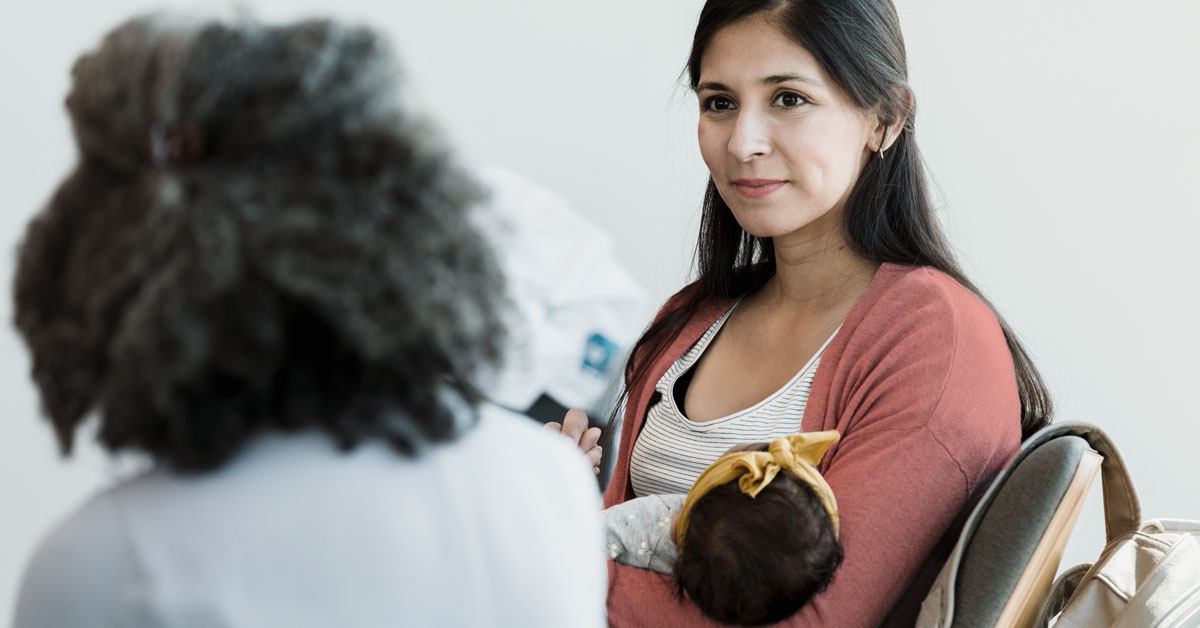Five Ways Occupational Therapy Practitioners Can Address Maternal Health
New mothers grapple with balancing their pre-baby life and postpartum responsibilities. The challenges of new routines, shifting family dynamics, and hormonal fluctuations often result in postpartum stress.
This stress can trigger anxiety, fatigue, diminished self-care, and a heightened risk of mental health issues, which can impact the mother's quality of life and overall household well-being (Fahey & Shenassa, 2013).
Many new mothers face overwhelming emotions and may lack adequate medical support. Postnatal care is a round-the-clock, physically, and mentally exhausting undertaking, and new parents often resort to trial and error while confronting new cognitive demands.
Occupational therapy practitioners (OTPs) excel in offering holistic, client-centered care. They address the physical, emotional, and psychosocial well-being of new mothers, collaborate within interprofessional teams, and assist in the transition to their new roles.
Five Ways Occupational Therapy Practitioners Empower New Mothers:
- Facilitate physical recovery: OTPs guide new mothers in building endurance and strength after delivery, and they offer pelvic floor rehabilitation. Since infant care is physically demanding, OTPs teach body mechanics, energy conservation, and proper grip and positioning to minimize musculoskeletal risks.
- Promote well-being: OTPs help new mothers incorporate self-care into daily routines, like walking with the baby, gentle exercise, breathwork, and meditation. They also collaborate on stress management techniques, assertiveness skill training, and screening for postpartum depression signs.
- Teach infant-care techniques: OTPs can instruct parents in caregiving skills such as positioning, environmental adaptation, feeding, and nursing. They also foster infant attachment through developmental and socio-emotional knowledge and can recommend toys and equipment for optimal growth.
- Establish new routines: OTPs help parents adapt old routines or create new ones to accommodate their little ones. They can assist with sleep training, nap scheduling, meal preparation, and energy conservation. OTPs also support time management for mothers by helping establish work, social, and self-care schedules.
- Build support systems: OTPs help new parents identify community resources like Mom's Club and assist in building social support networks for respite.
Bridging the Gap: Integrating OT into Maternal Health Care
The adage that "it takes a village to raise a child" rings true, as parents need both social and clinical support for their success for their new role. OTPs work within interdisciplinary teams, collaborating with physical therapists, holistic health professionals, medical teams, and mental health professionals.
OTPs can provide comprehensive care for new mothers, potentially becoming a primary care area for occupational therapists. With limited resources available for new mothers in postnatal care, OTPs can fill this gap through direct client care, telehealth, workshops, and print education (e.g., brochures, handouts). Some OTPs even find success advocating for emerging practice areas on social media, while companies like The Maven Clinic hire occupational therapists to address this growing need.
By advocating for the inclusion of occupational therapy in maternal healthcare, we can highlight the potential for improved outcomes and support for new parents. Incorporating occupational therapy into maternal healthcare equips new mothers with the holistic support they need to successfully navigate postpartum challenges.
Resources and References
Maternal Health and Occupational Therapy: Exploring Our Role with New Mothers On OccupationalTherapy.com by Sarah Loesche, MS, OTR/L, CHT
Fahey, J. O., & Shenassa, E. (2013). Understanding and meeting the needs of women in the postpartum period: the Perinatal Maternal Health Promotion Model. Journal of Midwifery & Women's Health, 58(6), 613–621. https://doi.org/10.1111/jmwh.12139
